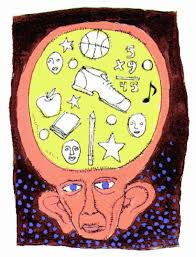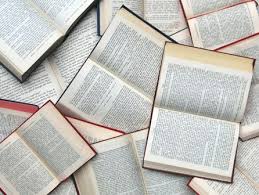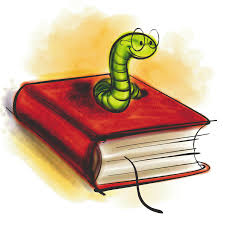Methods to Improve Memory
A student was once heard grumbling to his friends, “Much of what we learn we forget. The more we learn, the more we forget. The more we forget, the less we know. So why bother to learn?”
When some students fail or do badly in their examinations, they give the excuses: “I just cannot remember.” “I am not the memorising type!” “What I learnt just did not come out in the examinations!”
In our daily lives, memory is essential. We need to recognize places and people, to remember dates and time of appointments, to recall names, to remember roads and routes, to identify things and do so many other tasks. It certainly is an asset and advantage to have a good or strong memory. Imagine the doctor who cannot remember most of his patients, who has difficulty recognizing symptoms and remembering the names and effects of drugs. He will soon lose his patients. Likewise, the lawyer, teacher, engineer, in fact, a person in any profession, needs to remember a certain amount of knowledge and information.
Students cannot escape from having to memorize a certain amount of data or information in any subject. No doubt, examinations now tend to emphasize more and more on questions that are not merely based on simple recall or memory work. They demand thinking, understanding, analysis and synthesis. However, a certain degree of memory work cannot be avoided. In Mathematics, the students still need to remember certain formulae and methods to go about solving the problems. In language, remembering the meanings of vocabulary is important. Even in Computer Science, one still has to remember how to go about using a particular programme.
Tips to Improve Memory
1. Develop an Interest
Many students can easily remember the names of footballers, singers, actors and actresses. Some can even remember detailed information of the World Cup or lyrics of many popular songs. Why? The answer is simple: they have a keen of interest in the subject.
In the effective learning of a subject, an interest has to be developed. Try to see the importance and significance of the world and significance of the subject to the world and relate it to your everyday life.
2. Cultivate the Right Attitude
You must have the desire or the intent to remember. Learn to like or love every subject and be positive when learning it. If you dislike or hate any subject then it is rather difficult to learn it and remember the subject matter. Why do you detest any subject? If it’s because you find it difficult, then try getting a good tutor or good revision and reference books.
3. Appreciate the Background of the Subject
Knowledge and understanding of a particular subject matter can serve to motivate and inspire you in learning. For example, knowing the background of an author and how the novel was written can inspire your learning. Knowing about the life history of Michael Faraday can make a difference when you study his discoveries in Physics and Chemistry.
4. Pay Good Attention
An alert and attentive mind can make a world of difference when it comes to your ability to remember. In class, be very attentive to what is taught; sharpen your mind. Many students these days don’t have very good listening skills. As a result, very often a lot of subject matter is not registered in their minds when a particular subject is taught in class.
5. Understand the Subject Matter
It is very difficult to memorize a chunk of information that makes no sense to you. Clear understanding of the subject matter is very important before it can be learnt and retained in the mind. Ask questions and analyze the subject matter; examine its significance. Of course, if you have difficulty understanding any part of a subject, do not be shy to ask your teachers, seniors or your friends who know.
6. Review Immediately
After a lesson or lecture is given by your teacher is given by your teacher, you should make it a habit to go over and review it as soon as you can. When ideas, facts and concepts of a lesson are still fresh in mind, review and retention are more effective. Do not put off revision to the last moment, just before a test or examination. The subject matter would have become more vague and hazy and time is wasted trying to make sense of it before learning it.
7. Organize into Categories
Trying to remember bits and pieces of a subject is difficult. Learn to group or categorize things which share some similarities. For example, in Chemistry, coloured cations are grouped together; amphoteric oxides are considered as a class and glasses which have an odour are listed together. Likewise, formulae, equations and dates can be organized into meaningful categories.
8. Drill and Practice
It is a fact that most of the things we remember come about because we are so familiar with them – having experienced or used them many times – remembering names, telephone or vehicle numbers and the homes of our friends. Thus reviewing lessons repetitively naturally improves memory. In Mathematics, solving lots of problems constantly is important. Recitation or saying things aloud helps to create a better impression in your mind.
9. Relate New Things to the Familiar
To remember new information takes quite an effort. But if you connect or relate the new information to what is already known, then remembering becomes easier. For example, in learning about porpoises, dolphins and whales, if you note that they are all mammals, then things get easier. To recall the properties of the chemical element Astatine, relate Astatine to Iodine, Bromine and Chlorine, all members of the same Group in the Periodic Table.
10. Form Associations
Items of the information or facts can be easier remembered if you associate or form links of them with people, places or things. For example, the symptoms of a particular disease can be better remembered if we associate them with a person whom we know is suffering from the disease. Likewise, the shapes of many countries on the map can be associated with geometrical shapes like triangles, oval and trapezium. The more unusual, funny and exaggerated the association, the easier it may be for you to remember the information.
11. Visual and Image
Forming pictures or images in our mind of items can be very effective in remembering these items. The more funny, ridiculous or outrageous the visualization, the greater is the impact on the memory. In the method of loci, you can assign facts or information to memorise places well-known to you. For example, to remember 8 items in a shopping list, you visualize your bedroom: on different areas are hung your shopping items, for instance, a dressed chicken on your handle, 2 loaves of bread on your computer monitor top, apples lying on your bed and so on.
12. Use the Acrostic Mnemonic
Mnemonics are systems or aids for remembering information. Most Mnemonics devices are acrostic where the first letters of words in a phrase or sentence help us to recall the facts. Look at the following examples:
(a) To Recall: The 9 Planets in our Solar System (Mercury, Venus, Earth, Mars, Jupiter, Saturn, Uranus, Neptune, Pluto) | Acrostic: Melinda’s Very Energetic Mother Just Served Us Nine Potatoes
(b) To Recall: The 7 Colours of Rainbow (Red, Orange, Yellow, Green, Blue, Indigo, Violet) | Acrostic: Richard Of York Grinned Boyishly In Victory
(c) To Recall: The first 10 chemical elements in the Periodic Table (Hydrogen, Helium, Lithium, Beryllium, Boron, Carbon, Nitrogen, Oxygen, Fluorine, Neon) | Acrostic: Hey, Hey, Little Beautiful Baby Can Never Offend Friendly Neighbours
13. Write, Draw, and Colour
Writing ideas and points down on paper help to create an impression in your mind and thus will help you to remember. In your review or revision, scribble your points on paper and draw graphs, tables, charts and even cartoons! They will help you to recall. The use of colours also helps. Use vivid colours to underline shade or highlight your learning items. Colours help the mind to focus.
14. Make Summaries
A condensed form of the main points is a useful way to remember learning materials. After reading and understanding a particular topic in a chapter of the book, attempt to jot down clearly the summarised points. In your review, focus on these points; it would certainly help you to recall the learning material. At any time, you can refer to cards of summaries to refresh your memory particularly when the examination is drawing near.
15. Use and Focus on Key Words
Key words or phrases can help to ‘hook’ on the surrounding material of a particular topic. For example, in learning the preparation of a soluble salt like sodium chloride, the key words may be: acid, alkali, neutralization, filtration, evaporation, cooling and crystallization. In writing out the answer in the examination, the key words help you to link or string ideas and other facts together in a clear and logical order.
16. Don’t Overload Your Memory
Avoid trying to memorize too many things in one session. It is better to break up items to be learnt into groups – to be ‘programmed’ into your memory bank at different sessions. Remember to allow time for your memory bank at difference sessions. Remember to allow time for your mind to rest and become clear. A tired, dense and cloudy mind cannot function effectively.
Source: Oh Teik Bin, B. Sc. (Hons.), Dip. Ed. | The High School Student’s Companion
8:50 AM | | 2 Comments
Membaca: Kita Tuai Apa-apa yang Kita Semai
Seorang ahli panel temu duga jawatan guru melahirkan rasa hairan dan terkejut apabila mendapati mahasiswa dari Fakulti Pendidikan di sebuah institut pengajian tinggi awam tempatan gagal menjawab soalan jenis bertumpu yang berkaitan dengan isu semasa seperti prinsip Rukun Negara, perbezaan Dewan Undangan Negeri dengan Parlimen serta beberapa soalan mudah yang lain.
Lebih malang lagi, akhbar The Star (20 Disember 2006) memetik kata-kata Tan Sri Abdul Rafie Mahat bahawa, 1 540 orang guru (5 peratus) daripada 29 359 orang guru guru baharu gagal dalam temu duga untuk pengesahan jawatan oleh Suruhanjaya Perkhidmatan Pendidikan (SPP) kerana tidak dapat menjawab soalan mudah disebabkan oleh pengetahuan am mereka yang amat terbatas.
Selain itu, majalah Dewan Masyarakat, Februari 2007 melaporkan hasil kajian Majlis Tindakan Ekonomi Negara (MTEN) menunjukkan 70 peratus graduan yang menganggur terdiri daripada mahasiswa universiti awam, dan 90 peratus daripada mereka merupakan graduan bumiputera, 73 peratus daripadanya ialh graduan wanita. Faktor utama kesukaran mereka mendapatkan pekerjaan adalah disebabkan oleh kelemahan dalam penguasaan bahasa Inggeris, tidak mempunyai kemahiran dalam berkomunikasi dan tidak peka dengan isu semasa akibat daripada tabiat tidak suka membaca.
Kajian Frank Small & Association yang membuat penyelidikan tentang tabiat membaca golongan dewasa di Malaysia merumuskan masalah sebenar tabiat membaca dalam kalangan penduduk Malaysia. Dalam kajiannya, mereka mendapati, 31 peratus orang dewasa Malaysia tidak pernah membaca, 28 peratus membaca sebuah buku setiap dua hingga empat minggu, dan 12 peratus membaca sebuah buku setiap satu hingga tiga bulan.
Persoalannya, apakah di Malaysia, kita masih kekurangan bahan bacaan yang bermutu untuk dibaca sehinggakan kita mula menuai hasil yang kurang baik? Sebenarnya, di Malaysia, ada banyak bahan bacaan yang berupa majalah, akhbar dan buku yang bermutu ada di pasaran. Malangnya, kebanyakan pentadbir sekolah tidak begitu menggalakkan murid dan guru mereka membaca bahan bacaan yang berkualiti. Tumpuan mereka lebih kepada pencapaian prestasi peperiksaan yang semata-mata berkiblatkan dan bersandarkan kepada buku teks, buku rujukan, buku penilaian dan buku soalan ramalan. Akibatnya, pengetahuan am mereka terbatas, tidak boleh berfikir secara kreatif, daya intelektual yang jumud dan akhirnya, mereka sekadar menjadi warganegara pengguna yang baik tetapi tidak berupaya melahirkan inovasi yang dapat memakmurkan ummah.
Franklin Benjamin Sanborn menyatakan orang yang membaca beberapa buah majalah yang bermutu tinggi dapat belajar lebih banyak dalam waktu satu tahun yang digunakan oleh seorang mahasiswa yang belajar di perpustakaan yang besar. Namun begitu, kata-kata Sanborn ini tidak diambil peduli oleh masyarakat Malaysia, khasnya para pentadbir sekolah dalam menggalakkan anak didik mereka membaca majalah berkualiti terbitan Dewan Bahasa dan Pustaka (DBP).
Sebagai contoh, DBP mencetak 100 442 naskhah majalah daripada sepuluh judul majalah bagi bulan April 2009. Apabila majalah-majalah ini dipasarkan, lebih 40 peratus daripadanya dikembalikan semulam kerana masalah kekurangan pembeli.
Persoalannya, di manakah perginya perpustakaan sekolah di seluruh negara yang berjumlah 9 844 buah, guru sebanyak 386 031 orang dan murid berjumlah 5 416 924 orang? Mengapakah hanya sekadar 60 ribu hingga 70 ribu orang sahaja yang membaca? Ke manakah perginya pensyarah dan mahasiswa universiti? Dalam hal ini, Norman Cousins ada menyatakan, “Banyak mana pun diploma atau ijazah yang dimiliki oelh seseorang tetapi jika seseorang itu tidak dapat menggerakkan atau menghasilkan idea yang bernas maka, sedarlah pembelajarannya masih belum sempurna.”
Pada hemat saya, segala-galanya berpunca daripada sikap tidak ambil endah semua lapisan masyarakat terhadap kepentingan tabiat membaca yang berkesan. Pendapat Datuk Dr. Anwar Ridhwan (Dewan Masyarakat, Jun 2005) antara lain berkata, “Jika kita mahu tradisi membaca ini hidup serta kukuh dalam masyarakat, kita harus bermula daripada peringkat kanak-kanak dan kesannya dapat dilihat dalam tempoh 10 – 20 tahun yang akan datang. Usaha ini secara langsung akan menyediakan generasi muda Wawasan 2020 yang gemar membaca, sesuai dengan ciri-ciri negara maju dari segi pembangunan fizikal dan minda.”
Sebagai umat Islam pula, kembalilah menghayati kembali firman Allah SWT dalam surah al-Alaq (ayat 1 – 5) yang berbunyi, “Bacalah dengan nama Tuhanmu yang menciptakan manusia daripada seketul darah beku, bacalah dan Tuhanmu Maha Pemurah, yang mengajar manusia melalui pena dan tulisan. Dia mengajar manusia apa-apa yang tidak diketahui.”
Oleh itu, sebagai hamba Allah, wajib bagi kita memperkukuh amalan membaca tanpa syarat kepada semua lapisan masyarakat, sesuai dengan sabda Nabi Muhammad SAW, “Jangan sesekali merendah-rendahkan perkara yang disukai oleh Allah SWT bagi melakukannya, walaupun perkara itu hanya memaniskan muka semasa bertemu dengan sahabat.”
Akhirnya, yakinlah dengan kata-kata Hukamah bahawa melakukan sesuatu perkara tanpa matlamat adalah seumpama belayar di lautan luas tanpa destinasi. Tertullian pula berpendapat bahawa orang yang hanya memikirkan diri sendiri tidak akan dikenang dan dirasai bila ketiadaannya.” Lantaran itu, para pentadbir sekolah wajib memugarkan semangat membaca dalam kalangan guru dan murid khasnya melalui program Majalah dalam Kelas (MDK) dengan kos yang rendah tetapi memberikan pulangan ilmu yang lumayan.
Sumber: Azizul Rahman Abdul Rahman, Majalah dalam Kelas (MDK), Dewan Siswa Januari 2010
10:30 PM | | 2 Comments
Kata-kata Hikmah yang Paling Meruntun Sukma Untuk Dijadikan Iktibar Seumur Hidup
1. Sesungguhnya ilmu pengetahuan itu umpama sebuah lautan yang amat luas. Namun yang dikurniakan oleh Tuhan kepada manusia hanya setitik daripadanya. Maka tidak wajar kita memperlekehkan setiap fenomena mistik hanya kerana ia tidak boleh dibuktikan secara empirik oleh pengetahuan manusia yang kecil.
Sumber:
Saharil Hasrin Sanin, 2008. Dewan Kosmik Januari 2008. Kuala Lumpur: Dewan Bahasa dan Pustaka.
2. Bukankah orang-orang yang mindanya hebat, bercakap tentang idea:
yang mindanya sederhana, bercakap tentang keadaan sekeliling; manakala
yang mindanya selebihnya hanya gemar bercakap tentang manusia lain.
Sumber:
Nisah Haron Online
3. Di dalam hidup ini, sebenarnya tidak ada kesilapan kerana manusia sentiasa belajar, tetapi jika manusia tidak belajar daripada pengajaran itu maka itu adalah kesilapan.
Sumber:
Zaiton Abu Samah, 2009. Dewan Siswa April 2009. Kuala Lumpur: Dewan Bahasa dan Pustaka.
12:38 AM | | 0 Comments













Almanak
Jom Solat
Arkib Blog









Lelaman Sesawang Pendidikan
- BTP - Utama
- Cg Narzuki Online
- edu.joshuatly.com v2
- EDUWEBTV.COM - Digital Education For All
- Kampus Astro
- Kementerian Pengajian Tinggi
- Malaysia SPM Physics, Chemistry Add Maths Biology Science Notes, Books
- Petrosains, The Discovery Centre
- Portal Pendidikan Utusan
- Portal Rasmi Kementerian Pelajaran Malaysia - Utama
- PustaXa g4 - PDM, Dewan Bahasa dan Pustaka
- Selamat Datang ke Pusat Rujukan Persuratan Melayu
- Selamat Datang Ke Pusat Sains Negara : Laman Utama
- UPSR PMR SPM EXAM TIPS
Zulkifli - Yang Punya Kesanggupan
| ZULKIFLI | |
| Z | Zingy |
| U | Untung |
| L | Lemah-lembut |
| K | Komited |
| I | Ikhlas |
| F | Fleksibel |
| L | Lincah |
| I | Idealistik |
| Apa ada pada nama? | |





















